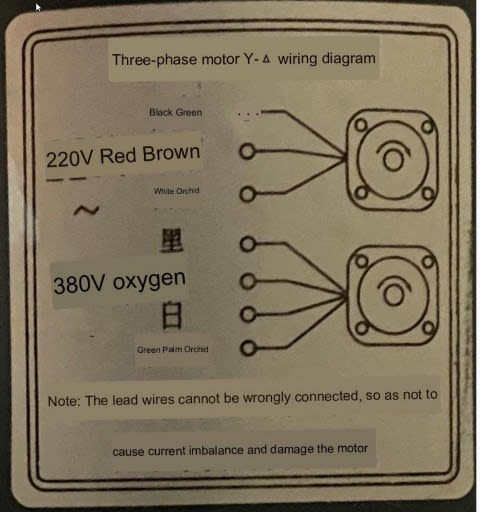m.ahsaniftikhar
Mechanical
- Sep 14, 2020
- 16
We have a Chinese motor with 6 leads coming out of it. It's a squirrel cage induction motor designed for three-phase power. Interestingly, the machine that this motor was found on is only taking L1 and L2, and N from the main board. This motor is intermittently lifting a heavy load up and down (like a 1-meter-tall elevator). The reversing of the motor is achieved by using an auxiliary contactor that reverses the L2 and N wires input to the motor. I wanted to understand how this is possible. There are no capacitors in this system. I have attached the photo of the sticker on the motor. For reference, we are running this in Europe with 220V 50HZ.

